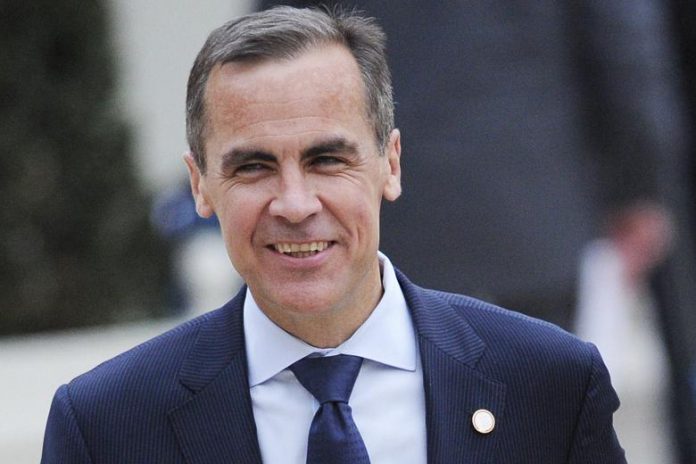Speculation increased over the weekend as to whether Bank of England governor Mark Carney will commit to his full eight year term, or leave his position in 2018.
Mark Carney was appointed governor in June 2013 and committed to just five years. However the standard term for a governor is eight years, prompting questions over whether he will remain in his post until 2021 or announce his departure at a time that may be crucial for the Bank of England, halfway through Brexit negotiations.
According to BBC economics editor Kamal Ahmed, Carney may be leaning towards extending his tenure to 2021.
“All the people I’ve spoken to, close to Mark Carney, suggest he is more towards staying than leaving,” he said.
Criticism over Carney’s handling of policy has grown in recent months, with Prime Minister Theresa May pushing for a ‘change’ in monetary policy in her speech at the Conservative party conference.
May said that whilst current monetary policy worked after the financial crash, there had been some “bad side effects”.
“People with assets have got richer. People without them have suffered. People with mortgages have found their debts cheaper. People with savings have found themselves poorer.
“A change has got to come. And we are going to deliver it. Because that’s what a Conservative Government can do.”
However, several economists and MPs have leapt to the governor’s defence. On the Today Programme, Economist Vicky Pryce, of the Centre for Economics and Business argued that his critics are effectively “criticising the Bank’s independence.”
“Mark Carney was absolutely right to be prepared to do something about Brexit.
“The economy wouldn’t be growing anything like as fast as it is if it wasn’t for his very immediate intervention in the markets.”
The pound is likely to be boosted on the back of a decision from Carney to stay in his role, jumping against the dollar over the weekend on speculation. It is currently trading down a little at 1.21 against the USD.

